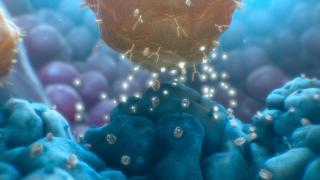Researchers at City of Hope have identified a pathway that explains how mutated cancer cells can continue to replicate and become resistant to oncology therapies.
Using whole genome sequencing technology, the scientists discovered a new mechanism for how genetically defective cells mutate to survive stressful situations, such as drug treatment. Understanding this resistance mechanism moves researchers one step closer to developing new strategies to prevent cancer development or to delay and overcome resistance to cancer drugs.
“Targeted cancer therapies have transformed cancer care and prolonged patient lives, but many patients eventually develop resistance to their lifesaving treatments. Our basic research hints at how we might one day be able to increase survival by delaying or even preventing the development of cancer drug resistance,” said Binghui Shen, Ph.D., professor and chair of the Department of Cancer Genetics and Epigenetics at Beckman Research Institute of City of Hope.
Shen has been conducting research on the fundamental mechanisms of DNA replication and the key enzyme called flap endonuclease 1 for the last 25 years at City of Hope. This finding, Shen said, is a milestone moment.
The study, published on Dec. 3 in the journal Science, was conducted in yeast, mouse and human leukemia models. As a next step, Shen’s team will see if they can replicate the discovery in more varied human cancer cells and establish regimens to overcome cancer drug resistance.

